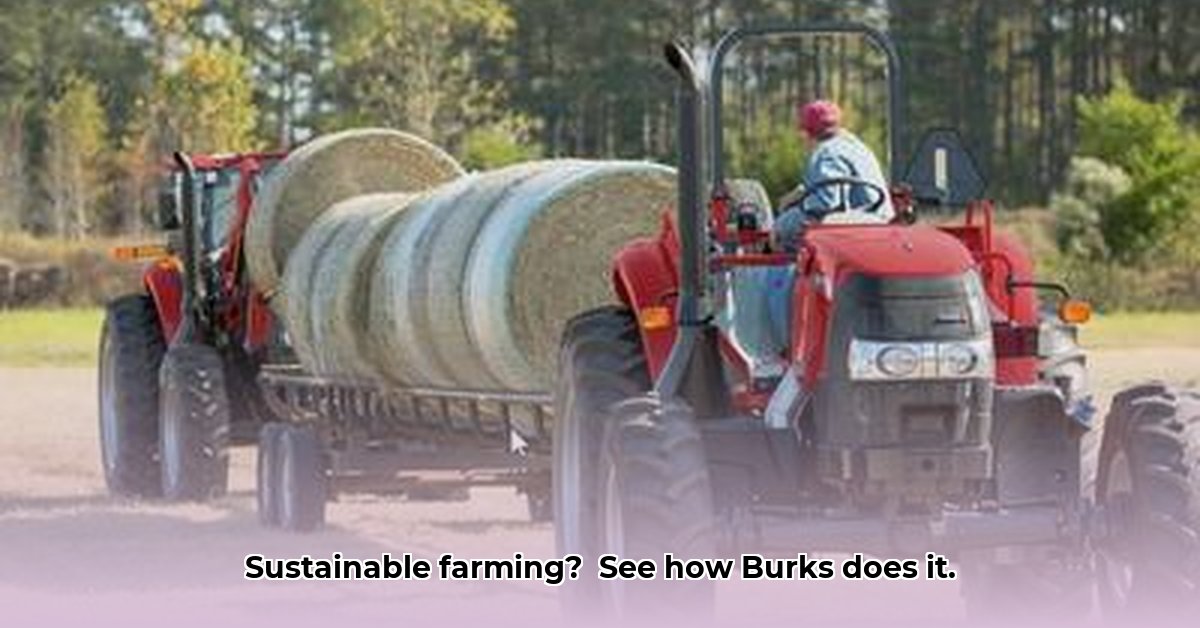
Burks Tractor, with locations in Twin Falls and Caldwell, Idaho, plays a significant role in the state's agricultural landscape. This case study examines Burks Tractor's contribution to sustainable agriculture in Idaho, exploring the challenges and opportunities facing the company and the broader agricultural sector. We will analyze their current operations, identify areas for improvement, and suggest recommendations for fostering a more sustainable future for Idaho farming. For land clearing techniques, see this guide.
Burks Tractor's Role in Idaho Agriculture
Burks Tractor provides a crucial service to Idaho farmers by offering a wide selection of new and used agricultural equipment from leading brands like Case IH and Kubota. Their comprehensive parts department and skilled service technicians ensure minimal downtime, maximizing farm productivity. While precise market share data is unavailable, their extensive presence and long-standing reputation indicate a substantial impact on the agricultural economy of southern Idaho. Their influence extends beyond simple equipment sales; they are deeply integrated into the region's farming community. This ongoing support is a vital component in the pursuit of sustainable farming practices. How can their influence be further leveraged to promote sustainability in Idaho agriculture?
Sustainable Agriculture in Idaho: Challenges and Opportunities
Idaho's agricultural sector faces the dual challenge of maintaining economic viability while embracing environmentally responsible practices. Farmers are tasked with increasing food production while simultaneously reducing environmental impacts. The transition to sustainable farming methods requires significant investment in specialized equipment and technology such as precision agriculture (using GPS and sensors to optimize resource use). However, the high upfront costs of adopting these technologies present a considerable economic barrier for many farmers. Government support, including financial incentives and policy changes, is essential to encourage the widespread adoption of these sustainable farming techniques. The question then becomes: how can the necessary technologies and support be made more accessible?
Burks Tractor's Contribution to Sustainable Agriculture
Currently, publicly available information on Burks Tractor's specific sustainability initiatives is limited. While their equipment inventory includes machines capable of contributing to sustainable farming (e.g., fuel-efficient tractors), detailed data on sales of such equipment or their environmental impact is not readily accessible. Transparent reporting on energy consumption and waste management practices would significantly enhance their sustainability profile. How can Burks Tractor increase transparency and showcase their commitment to environmental stewardship?
Recommendations for a Greener Future
To further enhance their role in promoting sustainable agriculture, Burks Tractor should consider these strategic actions:
Enhanced Online Presence: Their website should clearly showcase equipment and services that support sustainable farming. Highlighting fuel efficiency, precision agriculture capabilities, and other environmentally beneficial features will attract environmentally conscious farmers.
Strategic Partnerships: Collaborations with providers of renewable energy solutions for farms or precision agriculture technology companies would expand their offerings and provide access to cutting-edge sustainable technologies.
Comprehensive Sustainability Reporting: Regularly publishing data on their environmental performance (energy use, waste reduction, etc.) would build trust with farmers and demonstrate a commitment to sustainability. What measures of environmental performance are most relevant to this sector?
Farmer Training and Education: Investing in workshops and training programs on the use of eco-friendly equipment and best practices would greatly increase the impact of their services and drive adoption of sustainable technologies.
Stakeholder Collaboration: A Path to Success
Sustainable agriculture in Idaho requires a collaborative effort. Farmers need access to the right tools and knowledge; government agencies need to provide support and incentives; and equipment providers like Burks Tractor need to promote and innovate sustainable solutions. The success of Idaho's sustainable future depends on this partnership and effective dialogue among all stakeholders.
Conclusion: Building a Sustainable Future
The future of Idaho's agricultural sector depends on a collective commitment to sustainability. By working collaboratively—farmers adopting best practices, government agencies supporting sustainable initiatives, and companies like Burks Tractor expanding their sustainability efforts—Idaho can build a robust and environmentally responsible agricultural industry that thrives for generations. Continuous improvement, driven by innovation and collaboration, is crucial for navigating the challenges and opportunities that lie ahead.